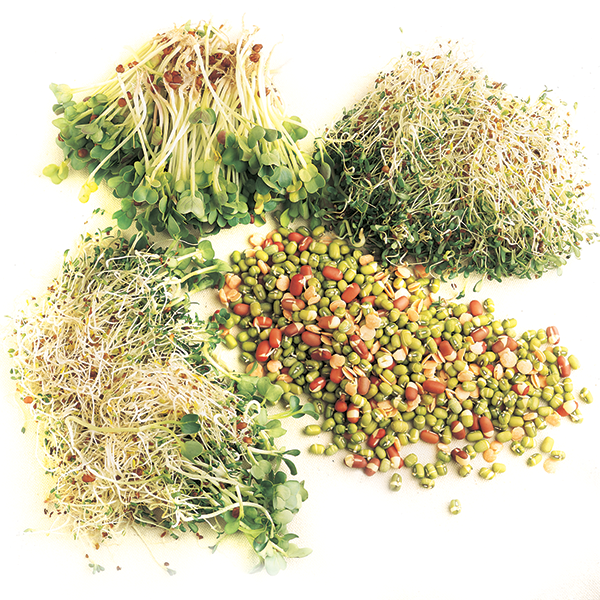
Sprouts and organics seem like a natural fit, and while the sales numbers for organic sprouts are small. If your store carries fresh sprouts, this makes organic sprouts an important part of the mix. Include organic sprouts near organic salad vegetables and organic bagged salads. Offer a display of them near the deli, as well.
Make organic sprouts an integral part of your salad vegetable promotions. Include them in promotions with other organic salad vegetables, organic salad dressings and other organic salad toppings.
Organic sprouts are also popular on sandwiches so include them in deli promotions that feature organic deli meat and bread.
Include organic sprouts in summertime grilling promotions to encourage shoppers to add sprouts to their burgers.
Offer a buy one, get one promotion to encourage consumers to try a different type of sprout. While alfalfa sprouts are the most familiar, other sprouts offer great flavors.
The key to sprout sales is variety. Offer several different varieties of organic sprouts. Experiment with different varieties to see what works best in your department. Include some of the following information on your display to educate consumers about the uses for each type of sprout.
The best way to display organic sprouts is in clamshell containers. They contain the sprouts to help you avoid a messy display. They also provide an easy way to label the sprouts to avoid mixing them. Clamshells also help prevent cross-contamination with conventional product.
Include organic sprouts near organic salad vegetables and organic bagged salads. Offer a display of them near the deli, as well.
Shipping
Sprouts are generally shipped in cartons of 4-ounce or 6-ounce clamshells.
Grades
No official U.S. Department of Agriculture grades exist for sprouts.
Handling
Temperature: 34 to 36 F (1 to 2 C)
Relative humidity: 90%
Mist: no
Typical shelf life: Most sprouts 5 to 10 days, sprouted beans up to a month
Exposure to heat will cause alfalfa sprouts to rot.
Never ice sprouts because they freeze quickly.